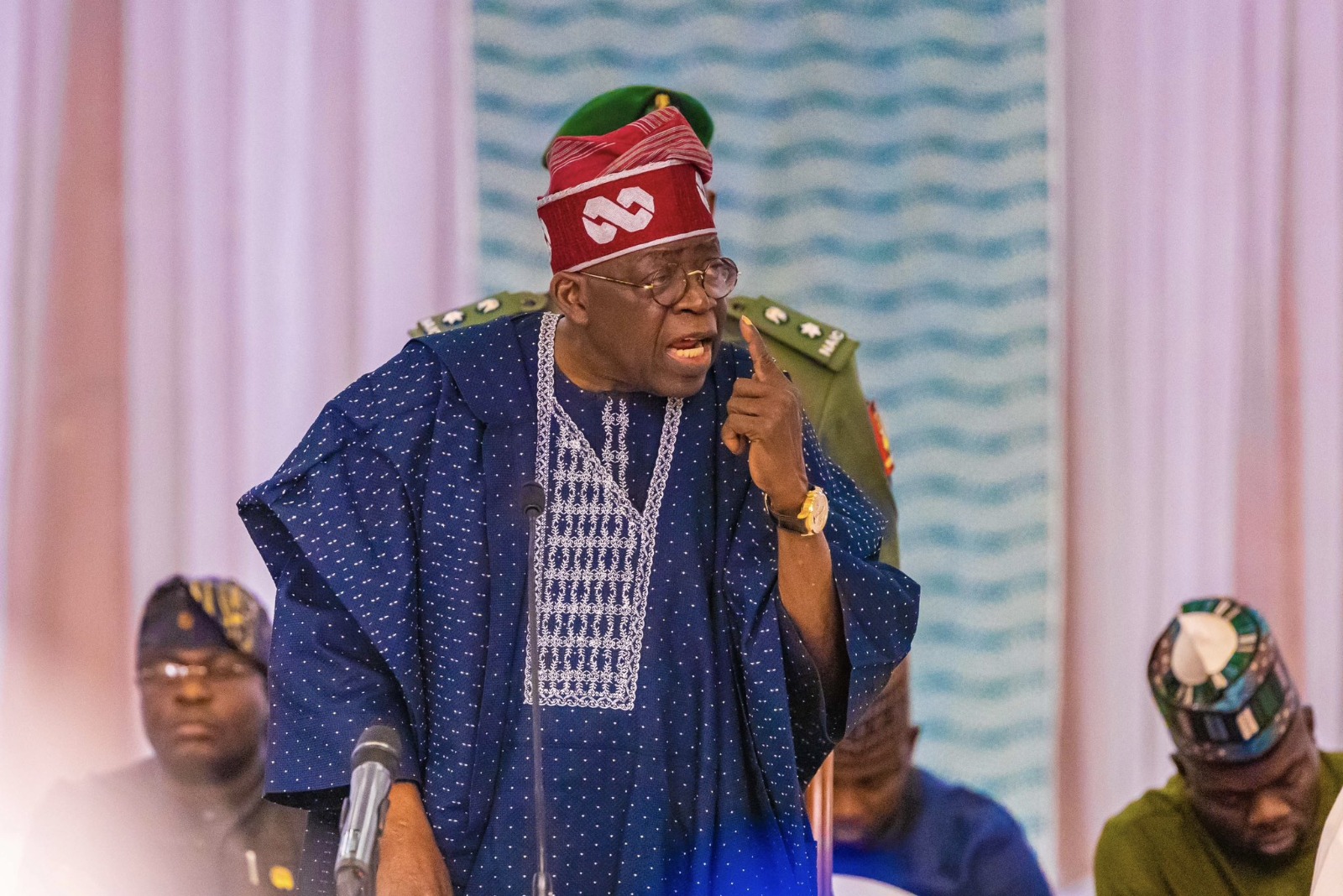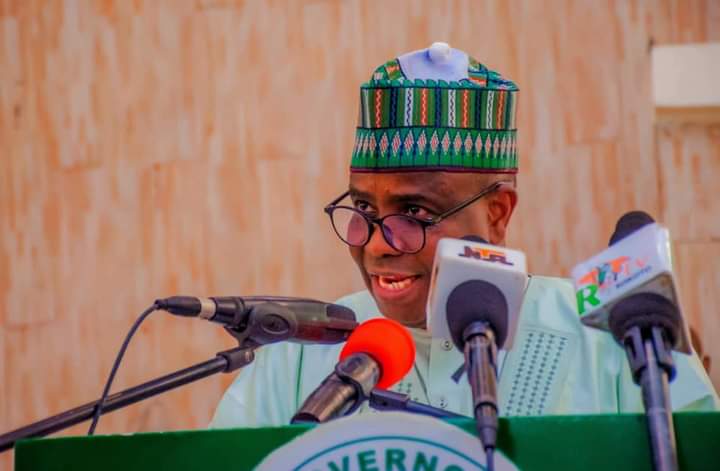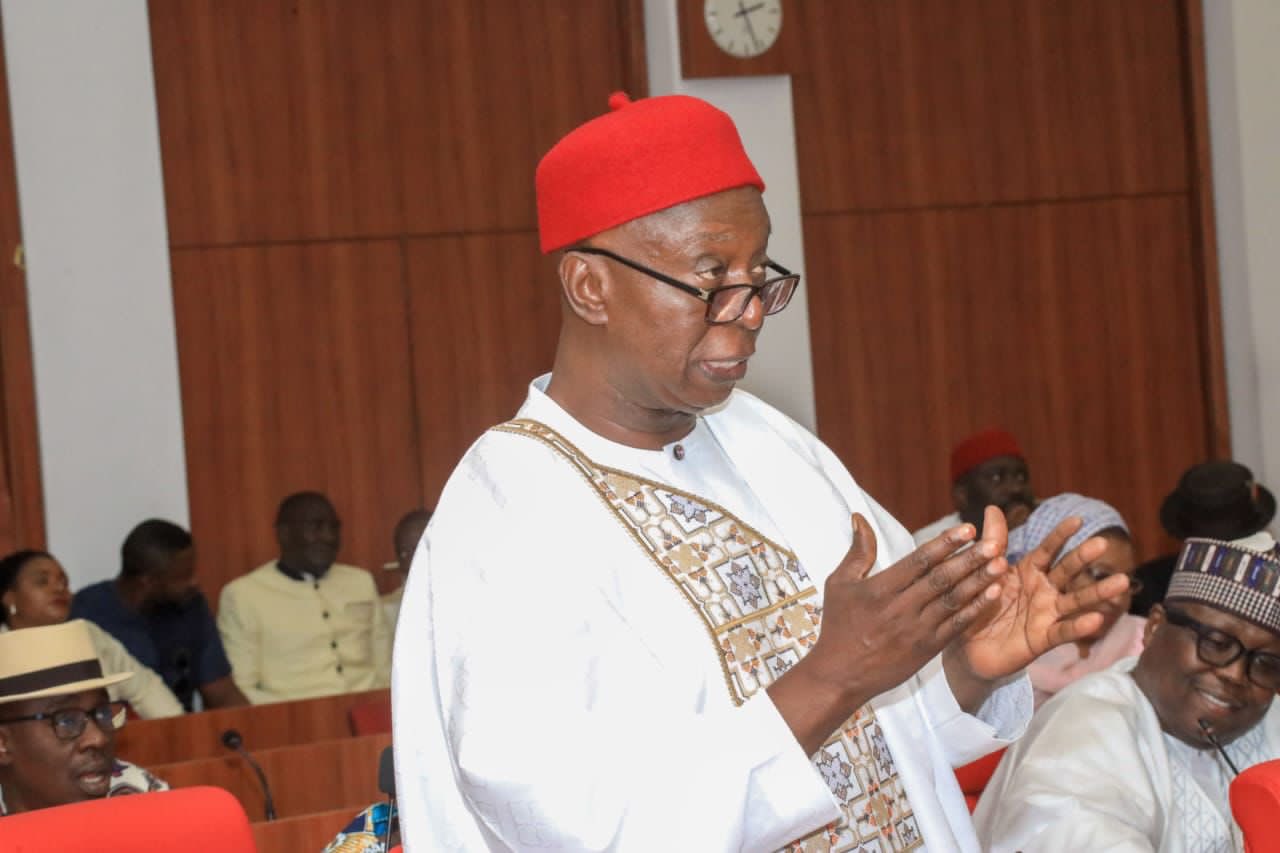My uncle recently asked me to help guide and counsel his son, who is at that discouraging state which many young Nigerians find themselves in after graduating from the university, doing the national youth service and trying their hands on a few endeavours without success. What many of them tend to do is “japa” — believing that being a toilet cleaner in “the abroad” is better than being an employer in Nigeria. I invited my cousin for lunch and had a heart-to-heart chat with him. I was almost in tears at the end. This boy plainly told me he believes in Nigeria, does not fancy “japa” as an option, and would love to stay back in the country, put his skills to use and make a decent living.
Regrettably, the country would not let him be. He told me that after his national service, he had set up a logistics business in Lagos state. He had two motorbikes he was using for the business. “I was doing quite well,” he said. “But Lagos state government officials killed the business. There were so many levies and fees and regulatory demands I just couldn’t cope with. Thugs were seizing the bikes every day. It was always one problem or the other. It was so frustrating. As you are renewing one paper, another is expiring. It was impossible to keep up. I decided to pack everything up. I had had enough. I wanted to work with my hands and create value with my ideas but they wouldn’t let me.”
This is the story of many Nigerians who want to go into business. They are not applying for CBN or NNPC jobs. They are not interested in working for Shell or MTN. They don’t want to do yahoo-yahoo. They want to work honestly and with dignity, using their hands and business acumen to create jobs and value not just for themselves but for others too. But what do they get in return? Harassment, extortion and the sledge hammer from bloodthirsty state agencies. It shows the quality of thinking among those in authority in Nigeria. In any country where the leaders truly understand how development works, they would help, not hurt, the micro, small and medium enterprises (MSMEs).
All over the world, including the most developed countries, MSMEs are recognised as the engine of the economy. When aggregated, they are the biggest employers of labour. Logically, governments desirous of tackling unemployment, poverty and crime would provide incentives to make doing business less stressful for them. MSMEs can help expand the economy and create more jobs. Sensible governments would design policies to help them thrive. But in our dearly beloved Nigeria, the opposite is the case. It is as if you have killed somebody by opening a shop. The way ministries, agencies and departments (MDAs) descend on you makes you feel you are an enemy of the state.
Advertisement
I told my cousin I have been a victim myself. In 2014, I started a publishing company from my sweat. We did not get any incentive as a small business from either federal or state government. What we started getting were visits from tax officials, most of whom were not genuinely interested in looking into our books but how to fill their own pockets. In 2019, we got a demand notice over PAYE. It listed employees we only engaged in 2017 as having been on our payroll from 2011 when the company was registered (we started operations exactly in April 2014). They made up salaries for them and calculated their imagined PAYE in arrears, complete with penalties and compound interest.
We once got a letter from FIRS seeking to audit our accounts over a five-year period to determine our compliance with payments and remittances, including VAT. We were so sure we were compliant and had nothing to hide, but we were only being stupid. By the time they were done, the auditors slammed a liability of almost N15 million on us for “overstated expenses”. They said we did not show evidence that our reporters actually bought the internet data for which we gave them monthly allowances. They also said the weekly transport fare we gave our journalists for reportorial duties were not receipted. Imagine asking a danfo driver for receipt for a trip from Ikeja to Ketu!
To be sure, I have no issues with tax audits. I am an advocate of ethical business practices. I hate cutting corners. But Nigeria will humble you. Nigeria will make you question your values as well as your sanity. We were so frustrated one day that we asked the tax collectors why they were doing this to us. One confessed that they had targets to meet and would not go back to their bosses and say they didn’t find anything wrong with our accounts. More so, they get bonuses for meeting their targets, so the system has created a perverse incentive which works for the tax collectors but against businesses. What he did not confess was that they were also using audits to extort businesses.
Advertisement
I was so incensed after one of those endless audits that I asked our tax consultant to sternly dispute the assessment and let the matter end up at the tribunal. I was so sure we did not commit any infractions. It was driving me nuts. But our tax consultant said while he was not opposed to us going to the tax appeal tribunal, it would be a waste of time and money. We would have to engage subject-matter lawyers, pay legal fees and, at the end of it all, there is no guarantee that the tribunal, a government body, will not take sides with a fellow public agency. Only the big corporates have the war chest for a robust legal battle. They also have the clout to survive the warped system.
Common sense tells you to allow a seed grow first before you start harvesting. It appears government is committed to killing the seed instead, as my cousin can testify. If small businesses are allowed to grow and flourish, there will be millions of jobs created and an endless value chain unleashed. There will be plenty revenue to follow: VAT, PAYE, withholding tax and other taxes. But the starting point is to let them breathe. Is this too complicated to understand? In truth, government agents have become terrorists to small businesses. They gleefully give business owners anxiety and high blood pressure. They derive pleasure from using state power to inflict pains on Nigerians.
The most notorious government agencies operate in the FCT. I once wrote about a friend who owns a bakery in Abuja. All manner of government officials come to the bakery almost every day from all manner of agencies. Three units from the Abuja Municipal Council Area (AMAC) do “health inspection”. The National Agency for Food and Drug Administration and Control (NAFDAC), the Nigeria Social Insurance Trust Fund (NSTIF) and the Standards Organisation of Nigeria (SON) also do “health inspection”. Believe me, one agency can do all the health checks — but this is Nigeria. There is an annual licence fee for “operating in FCT”. There is a fee for “using a car to distribute bread”.
That is not all. The Federal Housing Authority (FHA) and AMAC charge the bakery separately for “fumigation”. You cannot engage your own fumigator — you have to use their consultants. There is also the AMAC “sanitary inspection” fee. AMAC’s department of environment collects fees yearly to inspect — you guessed it — the environment. There is also the AMAC fee for “food and water-related handling”. The list is endless. I am not suggesting that small businesses should not be regulated, inspected or asked to pay taxes. These are the functions of the state. But, for Pete’s sake, how many taxes and levies should an MSME pay? How many regulators should an MSME face?
Advertisement
You can now imagine my delight that President Bola Ahmed Tinubu has set up a committee on fiscal policy and tax reforms. Since he has shown clearly that he is pro-business, I would be equally delighted if he would champion the cause of MSMEs. He should take it as a personal mission and rally the 36 governors to do everything to enhance the success and growth of these businesses. I understand that states and the FCT are driven by the singular motive of improving internally generated revenue (IGR). But this drive has become a toxic tonic for their agents to go totally out of control, forgetting that you need these businesses to survive and thrive first before you tax them.
My agenda for Tinubu in this regard is fairly simple: he should use his presidential power and moral authority to set the tone for all tiers of government on the need to make Nigeria business-friendly. We need to spread, not suffocate, businesses. First, I propose that there should be a one-stop centre to offer support to MSMEs in matters of registration, documentation, levies and taxes to end this hostile and suffocating system. Many agencies perform similar functions and make similar demands of businesses. Some businesses are targeted for frequent audit while many are outside the tax net. Through a robust support system, some of these complications can be streamlined and simplified.
Second, there should be a dispute resolution mechanism that is fair to all. The government is usually the accuser and the judge. If an agency inspects your factory, unfairly decides there is an infraction and shuts it down, you cannot ask for independent assessment. That is why extortion is normalised. The word of the agencies is law. And they are using this to the maximum. Some agencies engage thugs for enforcement. I would never forget when FIRS was using armed policemen to enforce tax collection in 2016. It was the height of official rascality at a time the economy was under enormous strain as a result of a recession. I pray that common sense will reign in government someday. Amen.
AND FOUR OTHER THINGS…
JAMB BITE
Advertisement
Mmesoma Ejikeme, a 19-year-old Anambra student, claimed to have scored 362 in UTME, attracting accolades and cash rewards for being the “best” candidate in 2023. As it turned out after all the brouhaha, she did not come first as claimed despite the massive support for her on Twitter. She actually scored 249, as she herself finally confessed. The QR code on the result slip she paraded to the media was superimposed. Yet, the saga became a source of ethnic strife and a vicious #NotMyJAMB campaign. Ironically, the highest scorer as named by JAMB is Kamsiyochukwu Umeh, also a student from Anambra. All those involved in the crime must now face the music. Justice.
OIL-POOR COUNTRY
Advertisement
In my previous article, I said our share of oil export is less than 400,000 bpd. Obviously, not many Nigerians know this fact. When it is reported that we export 1.4mbpd, most of it is not ours. Under joint ventures (JVs) with the oil majors, which are onshore, Nigeria used to get the lion’s share because it owned 55-60%. Under the production sharing contract (PSC), which governs offshore, the oil companies invest all the capital and recover their costs from oil production before Nigeria gets its own share. The sad part: the JVs, which favour Nigeria, are dying because of underinvestment, theft and high costs of operation while offshore, which favours the companies, is thriving. Damned.
STONE HEARTS
Advertisement
Mr Olukayode Egbetokun, the acting inspector-general of police (IGP), has disbanded the police team that ran over a cuffed man with a car in Edo state. The officers are reportedly undergoing disciplinary hearing. This is heartwarming. I testify that the Nigeria Police Force is always quick to discipline erring officers and this is usually in the public domain. What I still don’t understand is why these guys still behave the way they do. Is it that the punishment is not severe enough to serve as a deterrent or they are so hardened they cannot be bothered by the consequences of their actions? I sincerely would like to know. It may help the authorities take a step ahead of them. Frustrating.
AND FINALLY…
Advertisement
Do you remember Senator Adamu Bulkachuwa who said on video that his wife, Justice Zainab Bulkachuwa, used her position to influence judgments in the favour of his senate colleagues? Although his wife, who is former president of the Court of Appeal, later denied the claim, we may not have heard the last yet. The Independent Corrupt Practices and Other Related Offences Commission (ICPC) invited the former senator for questioning but he did not show up. Instead, he headed for the court for an injunction to stop the anti-graft agency from questioning him and declaring the invitation as “ultra vires, illegal, arbitrary, oppressive and unconstitutional”. Nigeria!
Add a comment







